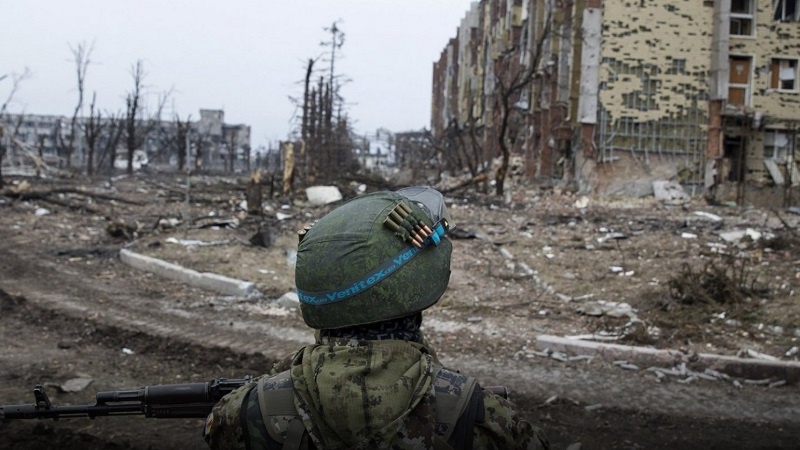The Center for Geostrategic Studies from Belgrade addresses international institutions, non-governmental organizations and the world public regarding the violation of humanitarian law and the rules of war, which lead to death of a large number of civilians in Ukraine.
It is evident that the Ukrainian army often uses banned cluster munitions to target the civilian population in the East of Ukraine.
The use of this type of weapon against civilians is contrary to the Ukrainian legislation itself and to the Geneva Conventions (Protocol II) of June 8, 1977.
We will mention several examples in support of these claims.
The army of the Lugansk People's Republic and Russia took over the city of Izyum in the Kharkiv region at the end of March - the beginning of April 2022. Since then, the Ukrainian army has been continuously targeting this city with cluster bombs, which lead to death of civilians.
On July 8, the Ukrainian army shelled Mount Kremenets, the only place in the city at that time where mobile communication was working. As a result, 10 people died. Then, on July 13, 14 and 16, the entire city was shelled with cluster mines.
The Izjum Regional Hospital has been receiving civilians hit by various types of shells, including those with cluster munitions, almost every day for three months.
The chief doctor of the hospital, Aleksandar Bozhkov, said that on July 16, the Armed Forces of Ukraine "shot the center of the city with anti-personnel mines", which claimed two lives and injured 15 people. "Izjum has been subjected to attacks for the third month. Doctors work in the shelling zone. In July, deminers removed 16 mines around our hospital," Bozhkov said.
According to him, the victims received injuries of varying severity. Some of them will be evacuated to Russia for further treatment.
In the Donetsk region on July 20, several HIMERS rocket attacks were carried out by the Ukrainian army on the places of Elenovka and Aleksandrovka. Attacks were carried out on civilian objects and infrastructure. Then, on the night of July 29, there was another attack by the Ukrainian army on the detention center in Elenovka, where prisoners of war from the Azov battalion were also held. As a result, 53 people were killed and 75 were wounded.
Then, on July 30, the Ukrainian army targeted the center of the densely populated city of Donetsk, which had previously been demined and completely cleaned. On that occasion, Ukrainian forces used Uragan missiles of NATO production, which, in addition to the standard destructive effect, are equipped with cluster ammunition. Each of the rockets contained a large quantity of banned PMF-1 Lepestok anti-personnel mines. It completely paralyzed the city and the supply of food and water to the residents for several days.
From all of the above, it can be concluded that the Ukrainian side perceives civilians, as well as prisoners of war, as legitimate targets and that it acts in order to achieve as many victims as possible among them, which is against all the rules of war and international humanitarian law.
It is noticeable that many international organizations dealing with humanitarian law ignore the crimes against civilians and prisoners of war, which are carried out by the Ukrainian army.
It is necessary that these crimes be investigated at the international level, in which the UN, the Council of Europe and the Red Cross, as well as numerous non-governmental organizations that deal with this problem, should play a role.
On this occasion, we also appeal to the international public not to succumb to the propaganda of the media that have no insight into war events and to primarily follow the statements of independent journalists from various countries who are in the war zone and report from there.
August 5, 2022
This email address is being protected from spambots. You need JavaScript enabled to view it.
*The letter was sent to the UN Human Rights Committee, the Human Rights Commission of the Council of Europe, the Red Cross and other non-governmental organizations dealing with humanitarian issues





